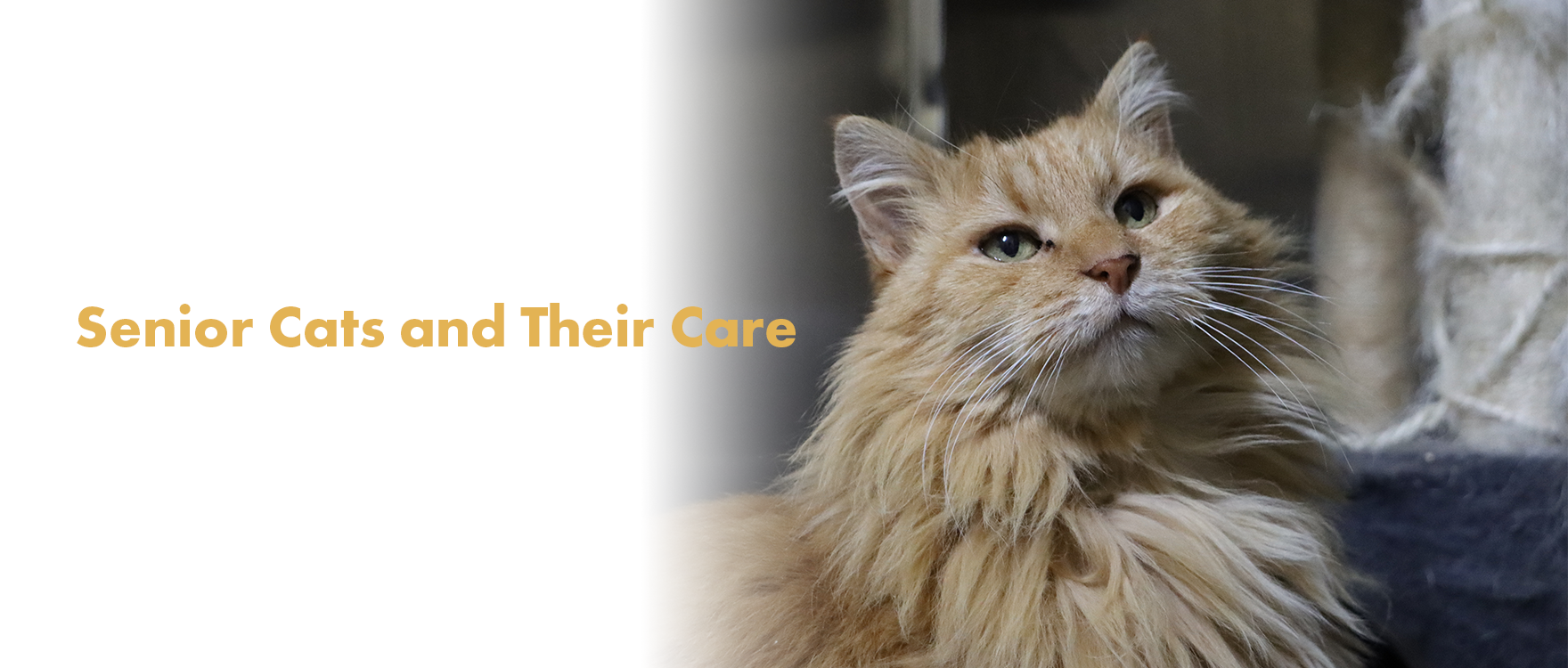Did you know that RSPCA ACT has been experiencing a high number of surrender applications regarding the surrender of old and geriatric cats? This post is hoping to help pet owners on how to best care for their ageing felines and to help keep them comfortable in their twilight years.
A cat’s health changes with age, both physical and mental. It is important to keep an eye on your pet as they age, as some changes can be subtle. Most senior cats will begin to sleep more than they did when they were younger and will usually sleep more deeply, this is typical for any ageing pet. Becoming aware of some changes will be able to help you identify and act on any potential medical issues before they become a ‘problem’.
You may notice some physical changes as they age; they become less spry, as they may not be able to jump or climb as easily or become less active in general. These changes may also look like:
- Failure to groom, greasy fur, or matting
- Bald patches
- Stiffness when walking or sitting, or discomfort when at rest
- Decreased or increased appetite or thirst, and excessive drinking
It is also important to note any mental changes you may see in your ageing pet. It is always recommended to seek veterinary advice if your normally sweet cat suddenly becomes a grouch, or if your normally cranky (we prefer the term ‘sassy’) suddenly can’t be bothered to be her normal self.
Senility can affect cats and is often called cognitive dysfunction. Symptoms of this include:
- Constant pacing, staring, or inability to settle,
- Sudden inappropriate toileting issues,
- Increased vocalisation,
- Appetite changes,
- Abnormal sleep patterns,
- Irritability,
If you notice any of the above changes in your pet, it is strongly encouraged to seek veterinary care.
When we have senior cats brought into our shelter, we find they are usually suffering from common health problems seen in geriatric cats. Some of the more common health problems that we see at the shelter are:
- Dental disease. Bad breath, a build up of tartar, and gum inflammation are some common signs of dental disease in your pets. There are preventative measures that owners can take to avoid dental disease, including daily brushing of teeth (if your cat lets you!) and dental care diets or treats. If you cat is already showing symptoms of dental disease however, preventative measures can only do so much, and you should discuss with your veterinarian what the next best course of action is.
- Arthritis. Is extremely common in cats, especially as they age. There are many ways to help manage arthritis in your cats at home, including providing ramps and steps for them to get onto couches, up stairs (ramps in particular!) and providing them with non-slippery flooring (if your house is mostly tiled!). Providing arthritic cats with shallower litter trays can help minimise inappropriate toileting and giving them comfortable and easy-access beds to sleep on can help keep them pain free.
- Kidney, Liver, and Thyroid issues. These issues are best diagnosed by a veterinarian of your choosing. These illnesses can mostly be managed through diet (Veterinary Prescription brands such as Royal Canin), and medication.
Disclaimer: The information and advice in this post is general in nature. It is not intended as a substitute for tailored health care advice from your regular veterinarian.

